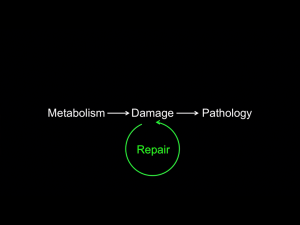
Aubrey de Grey’s Approach
Medical science is rapidly evolving in it’s ability to treat aging as a curable disease. This means in the not too distant future, living to age 120 and beyond will become normal.
Of course we will have to pay for being around longer! For most people recently retired or planning to retire soon, one of the keys to a successful retirement plan is to understand the financial implications of radical life extension. This topic brings up many doubts and hesitations for many if not most people when they first hear about it. But I suggest all of these hesitations are the result of not fully grasping what is being presented by the “stop-aging” proponents.
Several of the leading thinkers in this area (such as Aubrey de Grey, Ray Kurzweil) project that if someone alive today can be around in 15-20 years in a reasonably healthy state, then the advances in medical science that have been developed by that time will be able to deal with aging… first as a treatable illness (repairing accumulated cellular damage in Aubrey de Grey’s model) … and then as a curable condition. The damage that our faulty biological programming causes is repairable and ultimately fixable!
“Everything that happens to us in aging ultimately stems from a build-up of broken, worn, misplaced, and errant parts of our biological machinery.”
from a post by ‘Reason’ on www.fightingaging.org
Just to be clear, we are not talking about keeping near-corpses alive, but rather slowing and reversing the aging processes. In 20 years, an 80 year old person who has taken full advantage of medical interventions, could be as healthy, active as a 25 year old. Still, some people think this is ‘unnatural’ (well, so is getting your cavities filled at the dentist…), or just creepy (…well, since death has always been the only choice, having another option is bound to seem strange).
If you think this is crazy, or even if you think this is just highlly unlikely, I invite you to watch this 18 minute TEDxSF video by Joe Betts-LaCroix, a scientist with a broad science background (at Harvard, CalTech, MIT) who presents in an entertaining, reasonable, step-by-step fashion how we can clearly think about the prospects and desirability of extreme healthy life extension. Enjoy!
Stayin’ Alive: Don’t Go Gentle into that Good Night by Joe Betts-Lacroix
For those thinking about Retirement, the challenge then is to NOT base their entire retirement plan on the standard assumptions used in the financial planning industry. Rather, we need to think outside the box about what this means to the idea of “retirement” and our life altogether. This is not easy to do since virtually everyone else is at best thinking we might have a few more years to live then our parents did. This is an example of how linear thinking (i.e. projecting the future along the lines of the recent past) does not line up with the reality of the exponential changes happening in technology – and more recently, medical sciences.
Once we have accepted the basic rationale and motivation to stay healthy, we will want to do whatever we can to optimize our current heath. …and there is a lot we CAN do to slow aging. Many healthy habits cost money (i.e. organic produce, key supplements, good exercise equipment). Also, making the most of health/dental/drug insurance products and plans costs money. But given the extraordinary opportunity to see the century ahead, I for one am elevating the priority of that kind of expense. The suggestion is to put “optimizing your health” squarely in your budget.
Having a Financial Plan is still necessary – but it will be radically different from current thinking. We need to allow for the significant financial implications of being very alive at age 120+
Stay tuned to www.RetirementSingularity.com
Cheers, Michael





